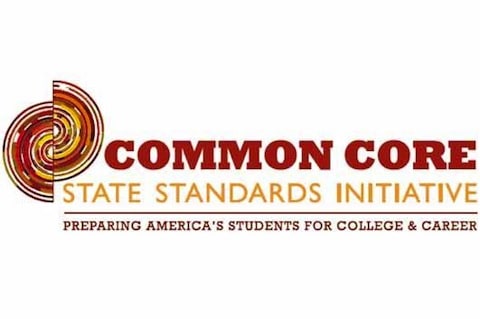The Conservative Case for Higher Common Standards

Highlighting the support of most current and many former Republican governors, conservatives launched a website yesterday in support of Common Core State Standards (CCSS). The new resource, Conservatives for Higher Standards, makes the case for high common college- and career-ready expectations, sets the record straight on what the new standards are and provides resources for educators, parents and policy makers.
The site cites key reasons conservatives should support the higher standards:
-
Created by the states for the states;
-
Preserve freedom for local governments, school districts, teachers and parents
-
Secure America’s economic future
-
Pave the way for less federal regulation and Intervention
-
Save taxpayer dollars
- Fuel a higher quality education system through rigor and innovation
Like an iPhone for education. To the last point, I’ve made the case that the Common Core is a big platform for innovation. The Core is producing significant investment in digital content. The way iPhone created an explosion of apps, Common Core launched an avalanche of innovation, including adaptive learning platforms like i-Ready and fully-digital, Common Core-aligned curriculums like the Pearson 1:1 launched at Huntsville in August. The Compass Learning team added, “Just in the past 12 months, the team has developed and released hundreds of new learning activities, quizzes, and writing prompts to address the deeper, more rigorous Common Core State Standards.”
Foundations are making a big investment in innovative CCSS content, including EduCurious, Khan Academy, ST Math, MadCap, MasteryConnect and LearnZillion, for this very reason.
Some critics complain about the cost of adoption, but the CCSS will save, not cost billions by eliminating the ridiculous duplication between states and making it easier for teachers to share tools and resources across state lines.
In a recent paper Digital Learning Now paper “Data Backpacks,” my co-authors and I argued that a thick grade book of data should follow a student from grade to grade and school to school. The Common Core will allow mobile (especially military) families a new level of continuity and teachers will be able to personalize instruction from day one with comparable data systems.
A Who’s Who. The list of conservative supporters of higher standards is impressive; just a few include Georgia Governor Nathan Deal, Iowa Governor Terry Branstad, New Mexico Governor Susana Martinez, Louisiana Governor Bobby Jindal, Oklahoma Governor Mary Fallin, Florida Governor Rick Scott, Tennessee Governor Bill Haslam, New Jersey Governor Chris Christie, Former U.S. Secretary of State Condoleezza Rice and former governors Jeb Bush, Mike Huckabee and John Engler.
The new site notes that CCSS, “define a set of high academic expectations of what students should know, understand and be able to explain in the areas of English and math at each grade level, Kindergarten through twelfth grade. They are rigorous, streamlined, relevant and better prepare students for college and the workforce.” The Core will result in more schools that inspire more reading, writing, and problem solving—who can argue with that?
As another new DLN paper illustrates, the new tools create the potential for schools that work better for teachers as well as students. Teachers are working in teams, personalizing student learning using data, and sharing resources and strategies with other teachers–in their school and around the country.
As Conservatives for Higher Standards (@CFHSTANDARDS) notes, the Common Core is giant platform for innovation for American education. The Common Core and the digital learning revolution are breaking down boundaries and improving the teaching profession. Quotes from many of the signatories suggest that they believe the Common Core is key to better education for the children of this country.
For more, see:
- www.HigherCoreStandards.org
- In Support of the Common Core
- Common Core: A Platform for Equity & Innovation
- Will Common Core State Standards Accelerate or Slow Innovation?
- Common Core Launches an Avalanche of Innovation
Disclosures: Digital Learning Now!, Curriculum Associates, Pearson, Compass Learning, MIND are Getting Smart Advocacy Partners.
Mastery Connection and Learn Zillion are/is a Learn Capital portfolio company(ies) where Tom Vander Ark is a partner.







0 Comments
Leave a Comment
Your email address will not be published. All fields are required.